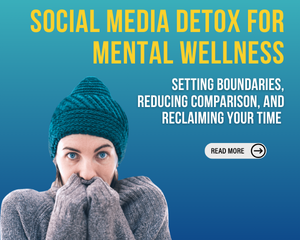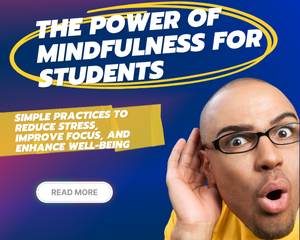The Student Stress Survival Guide: Practical Strategies for Managing Academic Pressure, Social Anxiety, and Overwhelm

Being a student is a tough job. It comes with a unique set of challenges. Academic pressure, social anxiety, and feeling overwhelmed can weigh you down. These are common experiences, but they don’t have to define your student journey. This guide provides a student stress survival guide. It offers practical strategies to help you navigate these challenges. Learn to manage stress and thrive both in and out of the classroom.

Understanding Student Stress
Stress is a natural response. It’s how your body reacts to pressure. It can be caused by many things. Schoolwork, social situations, and life changes are common triggers. When you understand what stress is, you can manage it better.
- Types of Stress: It’s important to know there are different types of stress. Acute stress is short-term and can be caused by a specific event, like a test. Chronic stress is long-term and can stem from ongoing pressure.
- Stress Symptoms: Stress shows up in different ways. You might feel it in your body, with headaches or stomach problems. It can affect your emotions, causing anxiety or sadness. It can also change your behavior, making you irritable or withdrawn.
- Impact of Stress: Too much stress can hurt your health, your grades, and your relationships. It’s important to take it seriously. Learning to manage stress is key to your overall well-being.
By understanding student stress and utilizing tools like Cirkled In, you can develop effective coping mechanisms and prioritize your well-being.
Tackling Academic Pressure
Schoolwork is a major source of stress for many students. The pressure to get good grades, meet deadlines, and succeed can be intense. But there are ways to handle it.
- Time Management: Good time management is essential. Create a schedule. Break down large assignments into smaller tasks. Use a planner or app to stay organized.
- Study Habits: Develop effective study habits. Find a quiet place to study. Take notes. Review material regularly. Don’t wait until the last minute.
- Goal Setting: Set realistic goals for yourself. Don’t try to be perfect. Focus on progress, not perfection. Celebrate your achievements.
- Seeking Help: Don’t be afraid to ask for help. Talk to your teachers, counselors, or tutors. Get the support you need to succeed.
Overcoming Social Anxiety
Social anxiety is the fear of social situations. It can make it hard to make friends, participate in class, or go to events. But it’s something you can work on.
- Understanding Social Anxiety: Social anxiety often comes from fear of being judged. It can lead to avoidance and isolation. Recognizing the patterns of social anxiety is the first step to managing it.
- Building Social Skills: Practice social skills in small steps. Start with simple interactions. Make eye contact. Listen actively. Practice conversations.
- Challenging Negative Thoughts: Social anxiety often involves negative thoughts about yourself. Challenge these thoughts. Replace them with positive or neutral ones.
- Exposure Therapy: Gradually expose yourself to social situations you fear. Start with less stressful situations and work your way up. Celebrate your progress.
Managing Overwhelm
Feeling overwhelmed is common when you have a lot of responsibilities. It’s important to learn how to manage it.
- Prioritization: Learn to prioritize tasks. Focus on the most important ones first. Delegate or eliminate tasks if possible.
- Breaking Tasks Down: Break large tasks into smaller, more manageable steps. This makes them less daunting. It also gives you a sense of accomplishment as you complete each step.
- Setting Boundaries: Learn to say “no” to extra commitments. It’s okay to prioritize your well-being. Don’t take on more than you can handle.
- Mindfulness: Practice mindfulness to stay present and focused. Mindfulness can help reduce feelings of overwhelm.
Building Resilience and Healthy Habits
Resilience is the ability to bounce back from challenges. It’s a key factor in managing stress. Healthy habits also play a big role.
- Developing a Growth Mindset: Believe that your abilities can improve with effort. Embrace challenges as opportunities to learn. See setbacks as temporary.
- Self-Care: Take care of yourself. Eat healthy foods. Get enough sleep. Exercise regularly. Make time for activities you enjoy.
- Stress-Reducing Activities: Find activities that help you relax. This could be listening to music, spending time in nature, or practicing yoga.
- Positive Relationships: Build strong relationships with supportive people. They can provide emotional support and help you cope with stress.
Seeking Support When Needed
It’s important to know when to seek help. Don’t try to handle everything on your own. There are people who want to support you.
- Recognizing When to Seek Help: If you’re feeling overwhelmed, hopeless, or if stress is interfering with your daily life, it’s time to seek help.
- School Resources: Many schools offer resources like counseling services, support groups, and wellness programs.
- Mental Health Professionals: Therapists and counselors can provide professional help. They can teach you coping skills and strategies for managing stress.
- Support Networks: Talk to friends, family, or trusted adults. Sharing your feelings can make a big difference.
Don’t let stress define your student experience. Take control, build resilience, and document your journey with Cirkled In.
Conclusion: Student Stress Survival Guide: Manage Pressure & Anxiety
Managing stress as a student is an ongoing process. It takes time and effort. But with the right strategies and support, you can thrive. Remember, you’re not alone. Many students face these challenges. By understanding stress, tackling academic pressure, overcoming social anxiety, managing overwhelm, and building resilience, you can navigate your student journey with greater confidence and well-being. Don’t hesitate to seek help when you need it. Your mental health matters.
Need more tips on college applications, scholarships, or just how to survive this whole process? Cirkled In has your back—check out Cirkled In resources to help you through every step of your college journey!



0 Comments